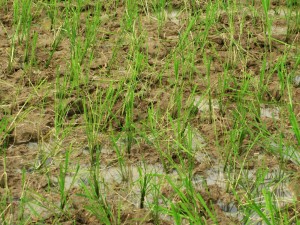The availability of rainfall has become a really major agricultural issue in Sub-Saharan Africa, considering that many crops are rain-fed. The modern and advanced methods of irrigation are expensive and their implementation is rather slow. Research has now shown that some understanding of the causes of rainfall variability would eventually lead to measures that could be used to examine reduction in total rainfall and/or the effects of drought. Evidence now shows that rainfall in most parts of Africa is linked to global circulation phenomenon. The predictions about the future of farming in Africa are mainly linked to the climatic changes being experienced all around the globe.
- Decrease in crop yield and increase in population
There will be a significant decrease in crop yields, and growing seasons even as changing in rainfall patterns will worsen people’s access to rain water. The decrease in crop yield vis a vis increase in population will put more pressure to an already fragile food production system in the continent. This is why researchers have predicted that if the current situation persists, Africa will only be able to sustain 13% of its food needs by 2050. Furthermore, the situation will threaten approximately 65% of African workers who rely on agriculture for their livelihood; leaving also children and the elderly vulnerable to food insecurity.
- Loss of biodiversity and degradation of ecosystems
Climate changes such as high temperatures and reduced water supplies, will eventually lead to loss of biodiversity and degradation of ecosystems. In sub-Saharan Africa, if the current climate trends continue, by 2030 the production of some crops e.g. wheat, is most likely to reduce by 10% to 201%. In addition to this, maize production would decrease by 5%, millet by 10%, and sorghum by 15%. Loss of biodiversity, and degradation of ecosystems will affect the quality of soil, as well as vegetation upon which livestock depends. Additionally, potential deduction in biodiversity, water, and crops should require Africa to pay closer concentration to its current food system. In other words, Africa requires an approach that will work with nature, not against it.
Researchers believe that Africa as whole need to incorporate knowledge that will ensure increase in crop production amidst climate change. Furthermore, they will also have to protect and fortify their water resources, which is vital to food security. In the next coming years, it has been predicted that water for agriculture will be stretched to a rather painful extent. About 95% of agriculture in Africa mainly relies on rainfall for water. The World Bank predicts that it is very likely that by 2100, the total accessibility of water in Africa could decrease by more than 10%.
- In summary, the most negative forecast about the effect of climate change shows that Africa may lose approximately 47% of its agricultural revenue by 2100, whereas the most hopeful forecast predicts only 6% loss. It is believed that if Africa is to strengthen agriculture and lessen hunger, then the continent will have to work with the natural environment, making it more flexible and fruitful under climatic change. The changes in climate should not necessarily mean greater food insecurity in Africa. Building on good practices such as strengthening natural resource bases and stimulating the existing ecosystems, will unlock Africa’s potential to feed itself.

